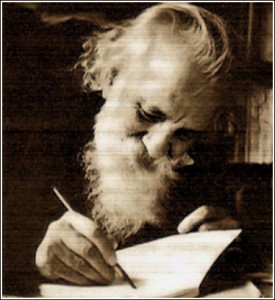French philosopher Gaston Bachelard lays bare the ‘house’ as a quintessential subject for phenomenological study.

French philosopher Gaston Bachelard lays bare the ‘house’ as a quintessential subject for phenomenological study.

The house, quite obviously, is a privileged entity for a phenomenological study of the intimate values of inside space, provided, of course, that we take it in both its unity and its complexity, and endeavor to integrate all the special values in one fundamental value. For the house furnishes us dispersed images and a body of images at the same time. In both cases, I shall prove that imagination augments the values of reality. A sort of attraction for images concentrates them about the house. Transcending our memories of all the houses in which we have found shelter, above and beyond all the houses we have dreamed we lived in, can we isolate an intimate, concrete essence that would be a justification of the uncommon value of all of our images of protected intimacy? This, then, is the main problem.
Bachelard, Gaston. 1994. The Poetics of Space. Boston: Beacon Press. pp. xxxvi, 3ff. || Amazon || WorldCat